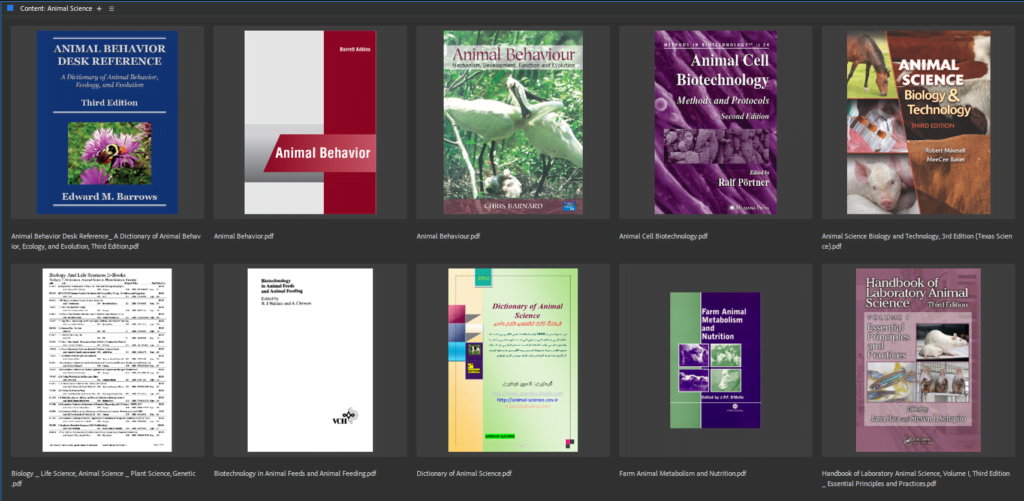
10 Powerful Reasons Why Agricultural & Biosystem Engineering Is Shaping the Future
Table of Contents

Introduction: The Impact of Agricultural & Biosystem Engineering
Agricultural & Biosystem Engineering is revolutionizing the way we produce food, manage resources, and protect the environment. As the global population continues to rise, the demand for sustainable and efficient agricultural practices has never been more critical. This field combines engineering principles with biological sciences to develop innovative solutions for modern agriculture, food production, and environmental conservation.
From precision farming and automation to renewable energy and sustainable irrigation systems, Agricultural & Biosystem Engineering plays a vital role in shaping the future of food security and environmental sustainability. In this article, we explore ten powerful reasons why this discipline is transforming the world and why it holds immense potential for the future.
1. Agricultural & Biosystem Engineering Enhances Food Production Efficiency
One of the most significant contributions of Agricultural & Biosystem Engineering is the optimization of food production. Engineers in this field develop innovative technologies to maximize crop yields while minimizing resource use. Precision agriculture, which utilizes GPS technology, drones, and AI-driven data analytics, helps farmers monitor soil health, detect pest infestations, and optimize irrigation, leading to higher efficiency and productivity.
With the integration of automation and robotics, tasks such as planting, harvesting, and sorting crops have become more efficient, reducing labor costs and increasing overall food production. These advancements ensure that food supply meets the growing demands of the global population.
2. Advancing Sustainable Farming Practices
Sustainability is at the core of Agricultural & Biosystem Engineering. This field focuses on developing environmentally friendly farming techniques that reduce carbon footprints, prevent soil degradation, and conserve water.
Engineers design innovative irrigation systems that use less water while maximizing crop growth. For example, drip irrigation and automated sprinkler systems significantly reduce water wastage. Moreover, bioengineering techniques, such as genetically modified crops that require fewer pesticides and fertilizers, contribute to eco-friendly agricultural practices.
Through sustainable farming solutions, Agricultural & Biosystem Engineering helps reduce the impact of agriculture on the environment while ensuring food security for future generations.
3. Revolutionizing Precision Agriculture with Smart Technology
Agricultural & Biosystem Engineering has paved the way for the integration of smart technology into farming. The use of Internet of Things (IoT) devices, AI-driven analytics, and machine learning algorithms has transformed traditional agricultural practices into highly efficient systems.
Farmers now have access to real-time data on soil moisture levels, crop health, and weather conditions, allowing them to make informed decisions. Drones equipped with multispectral imaging provide high-resolution images that help in monitoring crop growth and detecting early signs of diseases.
These technological advancements not only increase productivity but also reduce waste and enhance sustainability, making precision agriculture a game-changer in modern farming.
4. Promoting Renewable Energy Solutions in Agriculture
The agricultural sector is a major consumer of energy, but Agricultural & Biosystem Engineering is driving the adoption of renewable energy solutions to reduce dependency on fossil fuels.
Solar-powered irrigation systems, wind energy for farm operations, and biofuel production from agricultural waste are some of the innovative solutions being developed. These renewable energy sources not only lower operational costs for farmers but also contribute to reducing greenhouse gas emissions.
By integrating sustainable energy solutions, Agricultural & Biosystem Engineering is making agriculture more environmentally friendly and energy-efficient.
5. Improving Post-Harvest Technology and Food Preservation
A significant challenge in agriculture is reducing post-harvest losses, which account for nearly one-third of global food waste. Agricultural & Biosystem Engineering addresses this issue by developing advanced storage, transportation, and preservation technologies.
Cold storage systems, vacuum packaging, and controlled atmosphere storage are some of the techniques that extend the shelf life of perishable products. Additionally, engineers are designing better processing facilities that reduce spoilage and improve food safety.
By improving post-harvest management, this field helps reduce food waste, increase profitability for farmers, and ensure a stable food supply.
6. Enhancing Soil and Water Conservation
Soil and water are critical resources for agriculture, and their conservation is essential for long-term sustainability. Agricultural & Biosystem Engineering focuses on soil management techniques that prevent erosion, enhance fertility, and promote water conservation.
Techniques such as contour farming, no-till agriculture, and cover cropping help maintain soil health and prevent degradation. Additionally, engineers develop water recycling systems and rainwater harvesting methods to ensure efficient water use in agriculture.
By implementing these conservation strategies, this field plays a crucial role in preserving natural resources for future generations.
7. Developing Climate-Resilient Agricultural Systems
Climate change poses a significant threat to global food security, but Agricultural & Biosystem Engineering is at the forefront of developing climate-resilient farming systems.
Through genetic engineering, drought-resistant and pest-resistant crops are being developed to withstand extreme weather conditions. Advanced irrigation systems and climate-controlled greenhouses enable farmers to grow crops even in challenging environments.
These innovations help mitigate the impact of climate change on agriculture, ensuring a stable food supply despite unpredictable weather patterns.
8. Supporting Sustainable Livestock Production
Livestock farming is a major contributor to greenhouse gas emissions, but Agricultural & Biosystem Engineering is developing sustainable solutions to minimize its environmental impact.
Innovations such as methane capture systems, automated feeding stations, and precision livestock farming improve efficiency while reducing emissions. Additionally, alternative protein sources, such as lab-grown meat and insect-based feed, are being explored to lessen the environmental footprint of livestock production.
By implementing these sustainable practices, the agricultural industry can balance productivity with environmental responsibility.
9. Ensuring Food Safety and Quality
Food safety is a critical concern in modern agriculture, and Agricultural & Biosystem Engineering plays a key role in maintaining high standards. Advanced food processing technologies, automated quality control systems, and improved packaging methods help prevent contamination and ensure food safety.
Engineers are also developing biosensors and smart packaging that can detect spoilage, allergens, and pathogens in food products. These innovations protect consumers and enhance the overall quality of food available in the market.
10. Creating Career Opportunities and Driving Innovation
The field of Agricultural & Biosystem Engineering is not only transforming agriculture but also creating vast career opportunities. Engineers, scientists, and technology experts collaborate to develop innovative solutions that drive the industry forward.
From research and development to farm automation and biotechnology, the demand for skilled professionals in this field is growing rapidly. As the industry continues to evolve, new advancements will shape the future of agriculture and open doors to groundbreaking innovations.
Conclusion: The Future of Agricultural & Biosystem Engineering
Agricultural & Biosystem Engineering is at the forefront of transforming the agricultural sector into a more efficient, sustainable, and technologically advanced industry. From precision agriculture and renewable energy to climate resilience and food safety, this field is revolutionizing how we produce and manage food resources.
As global challenges such as climate change, population growth, and food security continue to emerge, the role of Agricultural & Biosystem Engineering will become even more crucial. By embracing innovation and sustainability, this discipline is paving the way for a better, more food-secure future.
If you’re passionate about technology, sustainability, and making a global impact, Agricultural & Biosystem Engineering offers exciting opportunities to be at the cutting edge of agricultural transformation.







Add Comment